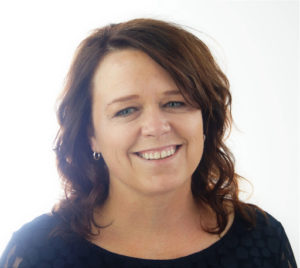
Colleen Kazemi is the Executive Director of SVP Denver.
What inspired SVP Denver to join the Theory of Change (ToC) cohort as a participating nonprofit?
SVP Denver had been a program of The Denver Foundation for 20 years. During that time there have been a lot of shifts in philanthropy and the needs of our community. It was time for us to reevaluate the work we’re doing and determine how we can best serve the community moving forward. Updating our Theory of Change has given us the opportunity to consider how we can have the best impact, the most robust community engagement, and a chance to determine how to scale moving forward.
In addition, we wanted to have a first hand experience of participating in our own cohort. We created the cohort model in response to the increased needs of the community during COVID. We’ve run a handful of them and are using a change and learning management process to continue to refine the model to ensure optimal outcomes. It was important to us to experience the work first hand so we can better understand the feedback we’re getting from participants and use that to improve the model.
(Note, you can hear SVP Denver and Paul Collier talk about the ToC in this short podcast.)
What did you learn through your experience in the cohort?
Even though our staff had a baseline knowledge of ToC, we learned a lot about how to put the content into action and how to connect the dots between target audience, programming and evaluation. We also used it as an opportunity to gain stronger internal alignment between our board and staff.
Was there anything that surprised you through your participation?
It did take a good amount of time for us to do the work. But, once we started, it came a lot easier. The process that Paul Collier, the SVP Partner facilitator, put in place to step us through the sections made them simpler to complete. We also got great feedback from our SVP Partner coach and Paul that forced us to question our previous assumptions.
What areas of needed change or adjustment for SVP Denver were uncovered as a result of your ToC cohort experience?
It is still evolving! We plan to share this with several external stakeholders to get feedback. I think an immediate area of adjustment is around how we communicate our message externally. We work with a lot of stakeholders and it can be complicated to speak so many “languages”. Putting the ToC in writing has helped us refine our messaging and brand.
How do you feel your experience will inform your design of future ToC cohort programming?
We’ve been making improvements to the program with every iteration and our team’s experience gave us new insight on how to improve the overall flow. Specifically, we’re planning to adjust the schedule to make sure there’s enough time for organizations to gather feedback from external stakeholders, such as program participants and partners. We intentionally designed the Theory of Change cohort to be fast-paced so organizations stay focused and get a lot done in a short amount of time. This worked for us and the other participants for the most part, but providing a little bit more time in order to get external feedback has the potential to make the overall program even stronger.
